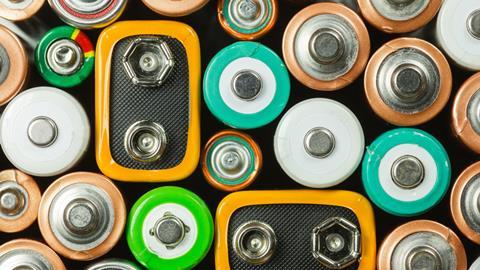Five members of KNCV / NVBMB are among the recipients of a €1.5 million Vici grant.
Dutch science funding organisation NWO selected 35 proposals to be rewarded with a Vici grant. These prestigious personal grants of €1.5 million enable experienced scientists to develop innovative lines of research and further expand their research groups.
Among this year’s Vici laureates are Tom de Greef, Nathalie Katsonis, Edwin Otten and Ilja Voets, who are all KNCV-member (Royal Netherlands Chemical Society) and Harold MacGillavry, who is a NVBMB-member (Netherlands Association for Biochemistry and Molecular Biology). An short summary of their proposals:
Tom de Greef, Eindhoven University of Technology
Next-generation micromaterials for DNA data storage and data editing
DNA holds great promise as a future and sustainable storage medium for archival data. In this project, the researchers will develop smart micromaterials and technologies that will improve the reading of data stored on DNA as well as enable manipulation of the stored data. The developed technology will establish a fundamental new paradigm in DNA data storage based on novel conceptual and experimental advances that integrate material science, robotic automation, micro-engineering and molecular editing of DNA.
Nathalie Katsonis, University of Groningen
Origins of primitive cells in the first ocean
The origin of life on Earth stands as one of the great mysteries of science. What are the chemical reactions that allowed life to emerge? Researchers have long concluded that these reactions took place in microscopic compartments, called protocells. However, we still do not know how these protocells were formed. Here, researchers explore the possibility that protocells were made of lipids, formed by solar irradiation of a primordial oil layer that covered the ocean. The results of this research will also apply to an important contemporary issue: the mitigation of environmental damage by treatment and removal of polluting oil spills.
Harold MacGillavry, Utrecht University
Shaping our memories: resolving the nanoscale organization of neuronal synapses in memory circuits
Our memories shape who we are. However, we still do not fully understand how memories are stored in our brain. The researchers will use advanced microscopy techniques to uncover the structure of the connections between nerve cells, synapses. They will investigate how molecular changes in synapses underlie the formation of new memories. This research will yield valuable insights into how our memory works and could contribute to finding new ways to alleviate conditions such as Alzheimer’s disease.
Edwin Otten, University of Groningen
Building better batteries with organic molecules
In this project the researchers will develop flow batteries based on abundant elements to replace the scarce metals that are currently used. Bipolar organic molecules will be developed as the charge-storage material for symmetrical batteries, in which the + and – pole have identical chemical composition. This results in increased lifetime and lower cost, and thus represents a major step towards more sustainable batteries for the efficient storage of renewable energy.
Ilja Voets, Eindhoven University of Technology
Dancing on ice
The ability of ice-binders to create and sculpt ice into tiny crystals with unusual shapes is unparalleled. The interaction with ice that is pivotal for this unique ability is not understood. TU/e researchers will use high-resolution microscopy to image how ice-binders dance on ice to understand how ice-interactive materials work and to unravel the ingredients and properties that enable regulation of ice formation and growth. This will lead to a blueprint for the design of new colloidal materials to prevent freeze-thaw damage and bring frozen cells and tissues back to life.
’Ice-binding proteins do the twist’, C2W International, 11 July 2023
Overview of all Vici laureates (NWO)













Nog geen opmerkingen